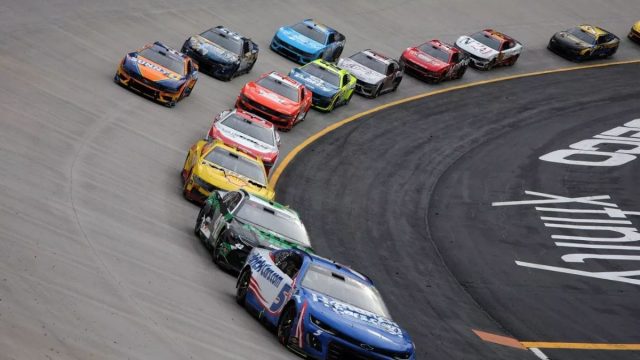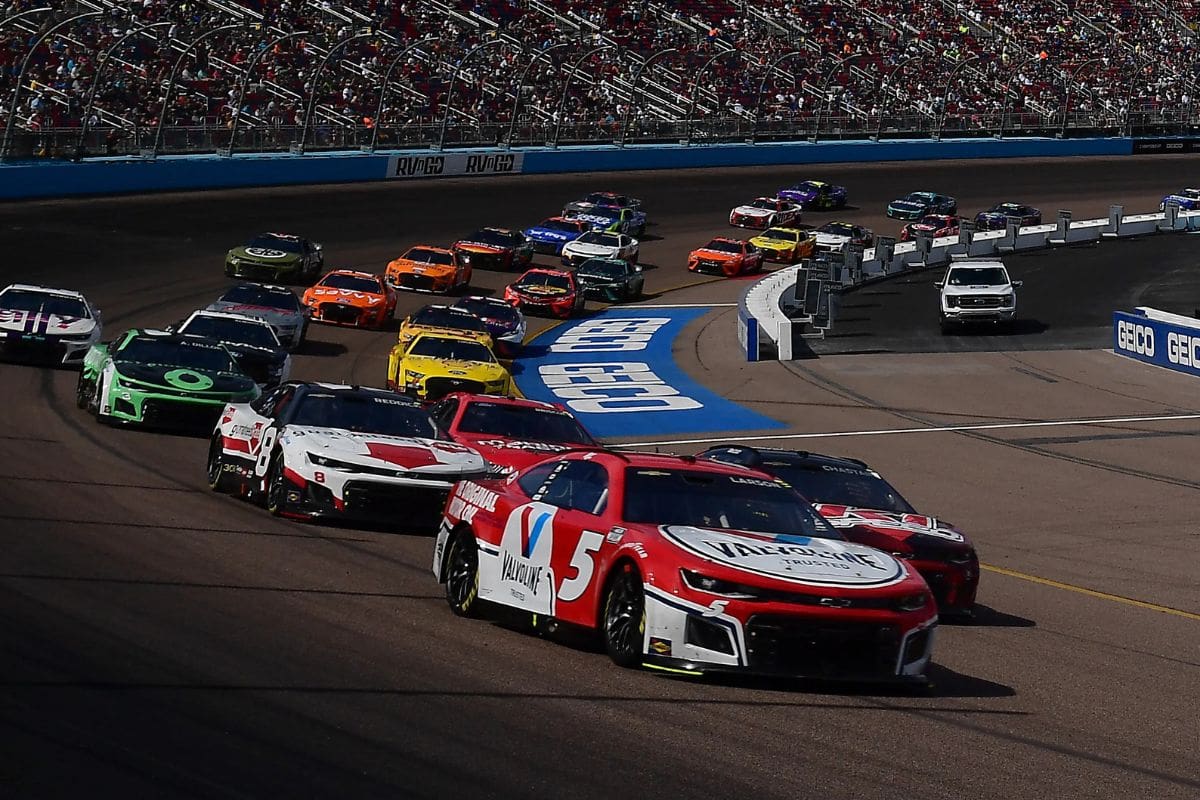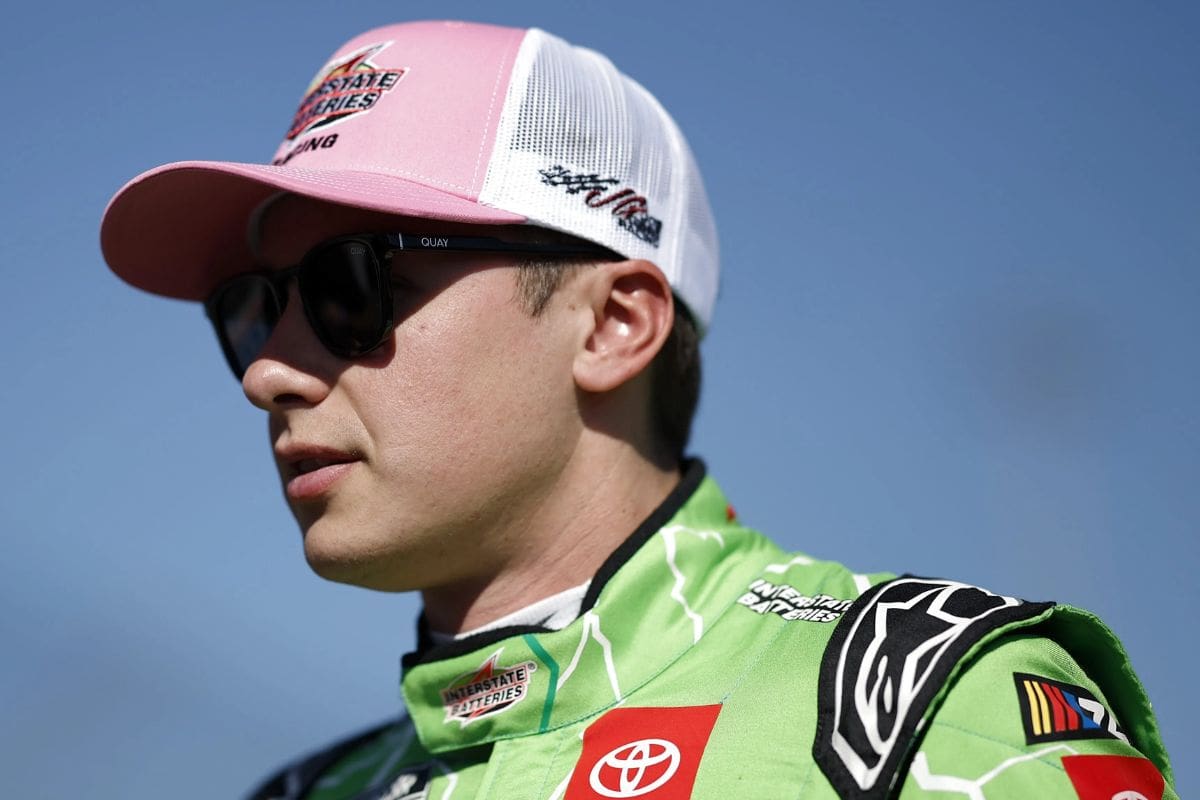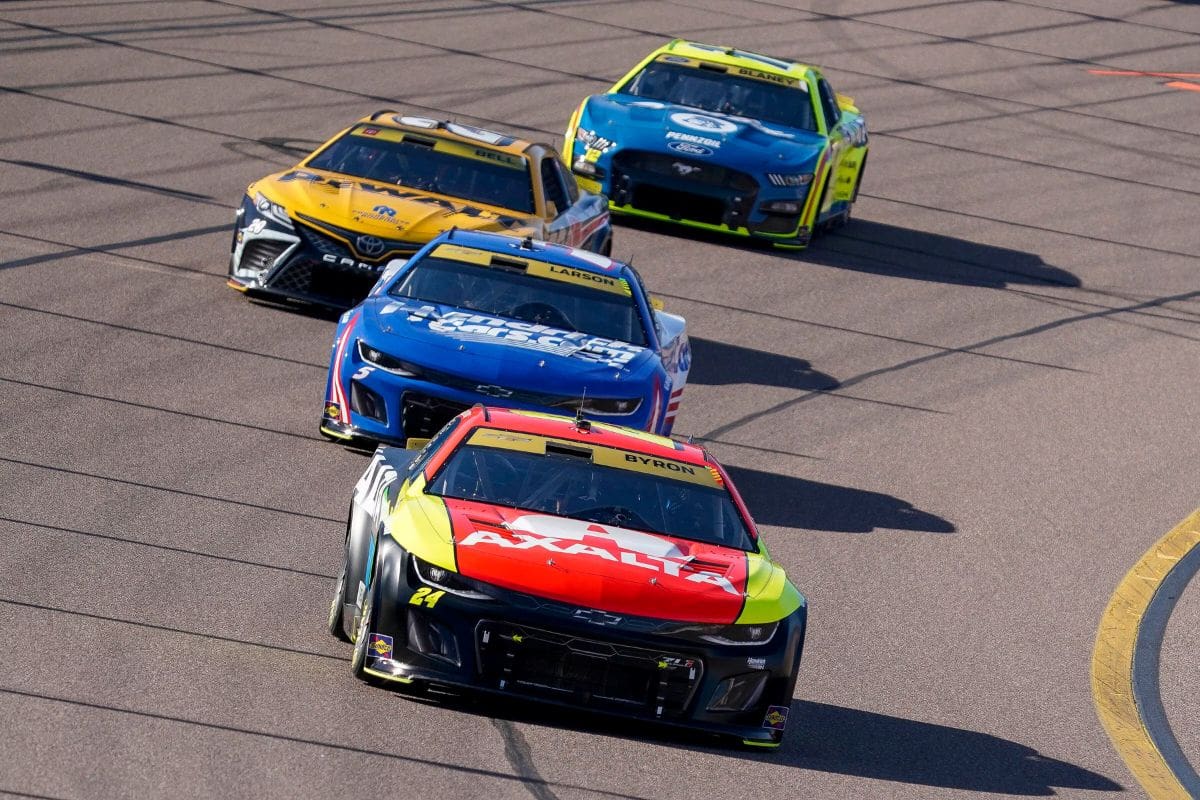NASCAR’s Tire Experiment Crisis: As the NASCAR playoffs loom, Christopher Bell‘s warnings about the implications of new tire regulations raise considerable concerns within the racing community. The introduction of option tires, particularly on abrasive tracks, has led to heightened anxiety among drivers regarding performance consistency and potential safety issues. This apprehension is exacerbated by a season already marred by tire-related incidents, suggesting the possibility of catastrophic wrecks in the early playoff rounds. The critical question remains: how will teams adapt their strategies to mitigate these risks while maneuvering through the intense competition of the playoffs?
Key Highlights
- Christopher Bell warns of potential wrecks during playoffs due to challenges with the new option tire performance.
- The introduction of red tires increases strategic complexity and heightens the risk of accidents.
- Abrasive track conditions at Watkins Glen exacerbate tire wear, leading to reliability concerns among drivers.
- Bell’s fifth-place finish contrasts with his teammates’ struggles, highlighting the need for effective tire management.
- Ongoing discussions emphasize balancing performance and safety as NASCAR adapts to tire experimentation.
The 2024 NASCAR Cup Series Playoff at Watkins Glen
As the 2024 NASCAR Cup Series playoff approaches its vital race at Watkins Glen, the stakes have never been higher for Joe Gibbs Racing (JGR). This weekend’s race represents a significant juncture not only for the team’s championship aspirations but also for individual drivers Martin Truex Jr. and Ty Gibbs, who face possible elimination.
With Denny Hamlin on the brink, the pressure mounts for JGR to secure a strong performance in what is a make-or-break scenario for their playoff advancement.
Watkins Glen, known for its technical layout and challenging turns, presents unique challenges that require not only driver skill but also tactical insight from the crew. The road course environment often leads to unpredictable outcomes, making it vital for JGR to utilize every advantage available.
As teams finalize their setups, the focus will shift to tire management and pit strategies, which could play a decisive role in the race’s outcome.
With the playoff field tightening, the margin for error diminishes considerably. A misstep in strategy or execution could result in a rapid and catastrophic end to the season for JGR’s contenders.
The implications of this race extend beyond mere points; they resonate through the team’s identity and future. As fans and analysts alike prepare for the unfolding drama, all eyes will be on how JGR navigates this critical moment.
Challenges with NASCAR’s Rule on Option Tires
Steering through the complexities of NASCAR’s rule on option tires poses considerable challenges for teams, particularly as they approach the critical road course races in the playoffs. The introduction of red tires this season has notably altered race dynamics, compelling teams to navigate a delicate balance between performance and durability. As teams prepare for upcoming road courses, the tactical implications of tire selection become paramount, especially after the recent tire-related incidents witnessed at Richmond.
The option tire rule necessitates that teams understand the unique characteristics and ideal usage of both tire types. This complexity is heightened by the unpredictable nature of road courses, where tire degradation and performance variance can lead to critical race outcomes. The potential for miscalculations could result in unwelcome drama reminiscent of earlier tire debacles.
As the playoffs loom, teams need to utilize data and driver insights effectively to avoid pitfalls associated with tire management. The stakes are high, and missteps could have lasting repercussions, making a rigorous understanding of NASCAR’s option tire rules vital for success.
Christopher Bell Warns About Upcoming Wrecks
With the playoffs approaching, Christopher Bell has raised concerns about the potential for wrecks and incidents on the racetrack, particularly in view of the ongoing challenges posed by option tires. The current season has been marked by a considerable number of accidents, attributed to numerous factors, with tire performance being a vital issue.
The rough conditions at tracks like Talladega Superspeedway, Bristol Motor Speedway, and Watkins Glen exacerbate tire wear, leading to handling difficulties that can precipitate collisions.
Bell’s observations during a recent NASCAR LIVE discussion underscore the precarious nature of the upcoming playoff rounds. He highlighted the risks associated with racing on abrasive surfaces, particularly in the context of the playoffs where every position is essential.
“Before we even get to real racing, you know, the real racing is in the round of 8. When we get to three normal racetracks where the best teams should rise to the occasion. Getting through what could be a tire debacle at Bristol. And what could be a tire debacle at Watkins Glen and then we got Talladega in the round of 12? I think the Round of 12 gets better with Kansas and the Rovel, but you still got Talladega mixed in there. So we gotta survive these first few rounds.” – bell
Bell pointed out that the early playoff rounds, especially with tracks known for their propensity for chaos, could turn into a “tire debacle.” His emphasis on the need to survive these rounds speaks to the heightened tension and unpredictability drivers face.
As the playoffs progress, the combination of challenging tire dynamics and the nature of the tracks could lead to a considerable increase in wrecks. Bell’s insights serve as a cautionary reminder of the intricate balance teams must maintain between performance and safety.
With tire management becoming increasingly vital, the potential for major incidents looms large, making the upcoming races not only a test of speed but also of strategy and resilience in maneuvering these treacherous conditions.
Joe Gibbs Racing’s Struggles and Christopher Bell’s Performance
In a season marked by challenges for Joe Gibbs Racing, the opening playoff race at Atlanta Motor Speedway highlighted the team’s struggles, particularly for seasoned drivers Martin Truex Jr. and Denny Hamlin, who finished 24th and 25th, respectively. Their disappointing results emphasized ongoing issues that have plagued the organization, raising questions about their competitiveness as the playoffs progress.
Truex and Hamlin, both veteran racers with extensive experience, faced difficulties that may reflect broader performance trends within the team.
In contrast, Christopher Bell emerged as a notable exception amidst the turmoil. The 29-year-old driver continued to demonstrate his impressive form, securing a fifth-place finish that positions him securely for the Round of 12. Bell’s performance is not only a demonstration of his skill but also highlights the potential for individual excellence within a team grappling with collective challenges.
While Ty Gibbs improved his standing by finishing 12th, his performance fell short of making a meaningful impact, leaving him and his more experienced colleagues facing an uphill battle in the subsequent races.
As the playoffs unfold, the contrasting trajectories of Bell and his teammates will be vital in determining Joe Gibbs Racing’s complete fate, emphasizing the necessity for tactical adjustments and renewed focus as they seek to recover from their early setbacks.
Apprehensions About Option Tires Among Racers
As concerns mount over NASCAR’s new option tire experiment, drivers are increasingly vocal about the implications for competition and fairness in the sport. Remarkably, Christopher Bell of Joe Gibbs Racing has emerged as a prominent critic, expressing unease over the potential impact of these tires on championship outcomes.
Bell’s skepticism centers on the notion that success could shift from raw performance to tactical tire management, questioning, “Do we want the champion to be the best car, or the one who saved a set of red tires for a lucky caution?” His perspective highlights a fundamental fear: that the integrity of competition may be compromised by tire strategy rather than driving skill.
“What do we want the champion to be? Do we want the champion to be the best car, or do we want the champion to be the guy that sucked all races and saved a set of red tires that got the lucky yellow flag?” – bell
Chase Elliott, while acknowledging the potential benefits of softer option tires, shares similar apprehensions. He suggests the possibility of increased tire failures, a concern that could exacerbate unpredictability during races.
“I could see both sides of the argument, one side being that you just have a softer tire. Does that help the racing? I could see that. I could certainly see that getting Goodyear to buy into having some failures, though, is going to be a hard thing to sell them on because that’s probably going to happen with it.” – Elliott
Elliott’s insights demonstrate a broader unease among drivers regarding the reliability and safety of the new tires, raising questions about their long-term effects on race strategy and outcomes.
The apprehensions surrounding option tires reflect a deeper philosophical debate within NASCAR about what constitutes true racing excellence. As the playoffs approach, the potential for considerable shifts in competitive dynamics looms large, with drivers like Bell and Elliott advocating for a balanced approach that prioritizes both performance and fair play.
News in Brief: NASCAR’s Tire Experiment Crisis
The implementation of option tires in the NASCAR Cup Series presents considerable risks, particularly as the playoffs approach. Christopher Bell’s concerns highlight the potential for increased wrecks due to the tires’ performance variability on abrasive tracks. The challenges faced by Joe Gibbs Racing and the broader apprehensions among competitors further underscore the urgency for effective tire management strategies. As the stakes rise, the interplay between tire reliability and driver safety will be critical in determining playoff outcomes.
ASLO READ: NASCAR Tire Gamble at Richmond: Steve Letarte Predicts Dire Consequences



